
Valley Road wagons, with their slatted, removable sides, are a familiar sight on Lancaster County’s back roads. The large, sturdy wagons carry flowers, produce, groceries, pets, and children. They’re a must-have for hauling yard sale finds in crowded developments, and useful for working in the garden or greenhouse. They are given as wedding gifts, used to haul hay in the barn, and the brave may even ride the wagons down hills.
But where do the wagons come from? We traveled to Quarryville, PA, to talk with the owners of Valley Road Woodworks and see how the wagons get made.

“I’ve been making wagons all my life,” says Gideon Fisher, the second generation of wagon-makers. His father, Jake Fisher, has been making wagons for thirty years. “In 1990, Dad helped to start the business. He was working for a guy who had a hardware store; they made their own wagons, and Dad just branched off with the wagons. The design didn't change a whole lot, the decals changed some over the years, but not a lot."
Valley Road Woodworking makes wagons, cornhole games, and tricycles. “As far as the standard wagon, we probably have eight different sizes, but there’s three main sizes. 350 is the most popular.”
“We have dealers scattered across the US. There’s a lot in the Midwest. Most stay in the states. Quite a few go to Canada. We send the wagons by freight, putting twelve or fourteen on a pallet. Every once in a while, we ship one overseas.
“Thousands of the wagons go to the U-Pick Pumpkin Farms. There’s one farm over toward Philly that has four hundred wagons, and the owner said on his busy days he could use almost twice as many. They get as many as ten thousand people on a weekend,” says Gideon.
“We always realize when the Amish wedding season kicks in. We like to stock up for that.”
The wagons are built to last “until you can pass it on to the next generation," Gideon tells us. “We make a lot of them out of poly now. The bed don’t rot out that way.”
Valley Road mostly sells wholesale, but some customers just stop by their business. “We do have a retail outlet here and they can come and buy one wagon that way. We sell three or four hundred that way each year.”

“Our normal is about 3,000 wagons a year,” explains Gideon. “Last year we made 4,400, that's how much it increased last year. It's something else."
COVID-19 “hasn’t been like we thought it would be. When it started, Dad and I looked at each other and said, ‘We’ll take every order we can get.’— we thought everyone would soon be out of work and nobody would want to buy a wagon if they don’t have money. But it turned out to be totally the opposite.
“At first everyone was kind of in shock, but in June, July, and August we started getting busier. October and November were crazy. We were swamped until Christmas. And it still is that way.”
Due a high demand for outdoor furniture, poly lumber is in short supply. “Smaller guys are going out of business because they don’t have the inventory they need to keep going.”
Sometimes other business owners ask the Fishers for poly lumber, and but they can't sell all their poly lumber either— “We’re booked up until June with orders now.”
To keep up with the work, “This spring we were talking about hiring someone. But that’s very hard right now.” Like poly lumber, the demand for labor is greater than the supply in Lancaster County. Even though Valley Road offers more than double the minimum wage, larger companies can afford to pay even more. “Right now,” says Gideon, “anyone who wants to work, can certainly find work.”
So for now, Valley Road Woodworks has only family members employed. "It’s me and three of my brothers and my sister just started today. So there’s six with Dad. We really enjoy it.” The family all lives either on the property or close enough to walk to work.
The wagon beds and slats start in a workshop:


Which is powered by a diesel engine:

The pieces with natural finish are varnished in a special shed reserved for varnishing. The demand is so great, Gideon says they hardly have the time to let the varnish dry properly.

In a large, airy, shed, the wagon sides are painted and hung to dry. (Gideon's sister, not in the picture, is the one painting the slats.)

Gideon's father, Jake, paints white lines on the slats. They are set up on sawhorses outside. (In the background, the sheep are visible.)

Only the wheels are imported. "They're custom-made for us," says Gideon.

In another shop, one brother welds the steel parts for the framework, or the undercarriage, of the wagon.
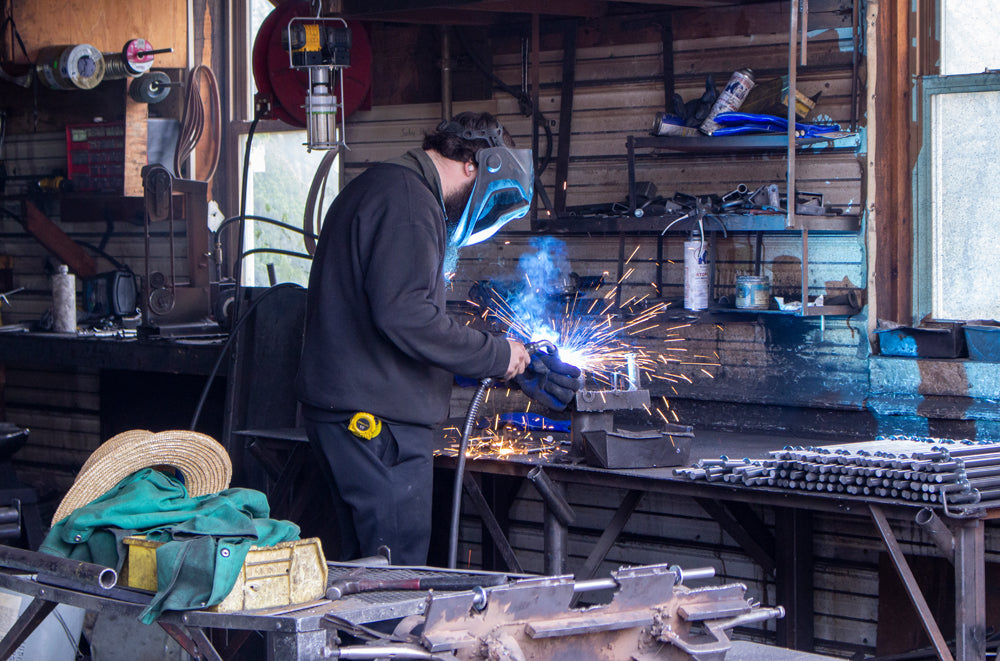
In the final stage, the wagons are assembled:

Finished wagons on display below:
To order and pickup in store, see the Valley Road wagons here and the cornhole games here.


(Photos taken by Dorcas Lichtenberger.)
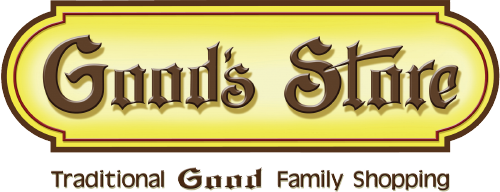
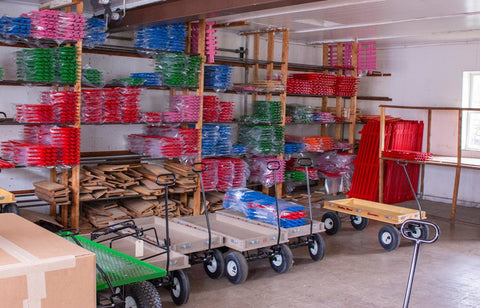
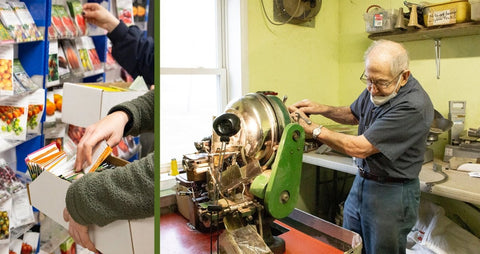
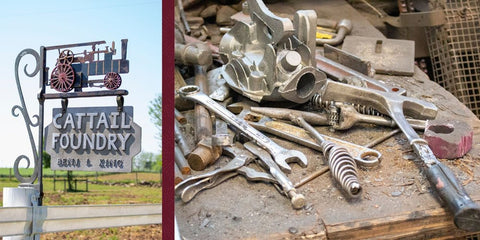
Comments (10)
This is the true spirit of our country, and you are to be commended for keeping this hands on kind of work you do alive and well! I thank you!
Very interesting… glad you shared their success story
Thanks you for the interesting story of a family business. I was part of a family Flower Shop and Greenhouse business. My father started the greenhouse operation. After completing college I started the Flower Shop. There were three brothers my mother and father along with my wife that were involved in it. So I know family businesses. I am now retired.
Such a great story, thanks for sharing.
I really enjoyed the posting. My wife and I used to visit the area at least once a year, until this past summer. Now at 90 I can no longer enjoy going there, but we have lots of pictures and many good memories. Thanks again.
It really is encouraging to know that quality, hand made items are made in our area.
I moved to the area a few yrs. ago to retire.. I so enjoy reading and learning about the local traditions . It’s so wonderful to see family’s working together and doing well. What a wonderful County to live in.. Thank you for the blogs.
Your expository story restored my hope in small businesses and family values in our country.
Who doesn’t love a story of a successful family with a business that’s now spanning
generation’s.
Loved it❤️ Thank you
Great wagon, my wife and I stopped by the shop and purchased a wagon from Gideon for our granddaughter. She loves to be pulled in her bright red wagon.
Thanks
Thank you for writing your wonderful blog posts. They are always so interesting. I love learning about the family businesses around Lancaster.